If you look at the top two teams in the Premier League now, Liverpool and Manchester City, they are two high pressing sides who love to play out from the back with ball playing centre-backs. However, such players at the top level is a rarity with Vigil Van Dijk and John Stones costing £75 and £50 million respectively. If anything positive came from Liverpool’s defeat against Wolves in the FA Cup, it’s the emergence of 17-year-old Ki-Jana Hoever who was signed from the Ajax academy for £90,000 in September 2018.
The Dutch under-17 international joined the Liverpool under-18 side in September and has gone from strength to strength. He has recently been training with the senior side since December and is highly rated by Jurgen Klopp. This tactical analysis will show how good Hoever actually is.
In possession
One of the key features that Hoever possesses is his body positioning when he receives the ball.

In the image above, you can see Hoever’s body position faces the whole of the pitch in front. Therefore, he creates time on the ball to pick his passing options so he can take one touch to control and one control to play. If there is an option to play the ball into the midfield third, then he can do this in the quickest time possible which increases the tempo in which Liverpool play at. This ultimately increases Liverpool’s counter-attack time and success at playing out from the back.
You can look at Hoever’s passing stats below to see the width and range of passing that he had against Napoli under-19s. You can see his body position has allowed him to visualise players across the pitch and he can play these passes much more quickly. His ability to drive up the pitch has allowed him to play balls into the attacking third.
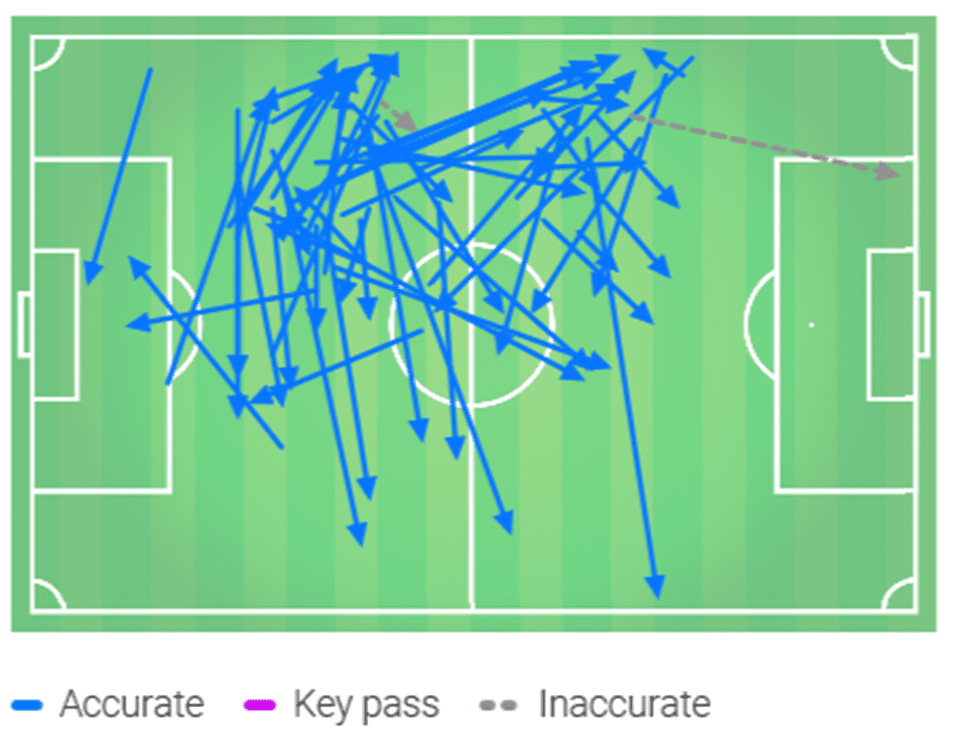
Hoever’s body position allows him to read the game with more success. This allows him to find space to drive out from the back with the ball and play a pass higher up the pitch, which he showed against Wolves in the FA Cup. He recognised the space in between the forward and midfield lines of Wolves and dribbled the ball into this area before playing it to the right wing.
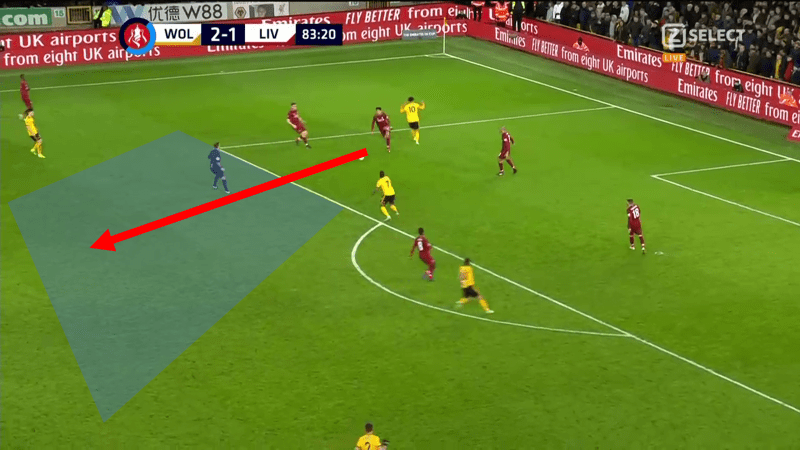
Hoever has plenty of confidence on the ball due to his ability to see space on the pitch and his dribbling qualities. He is not afraid to use some skill to beat a forward player when playing out from the back.
This is brilliant for a team who will look to try and play out from the back and decrease the time the ball goes from the defensive third to the attacking third. Below we see Hoever run out of options to play the ball. Instead of clearing his lines and losing control of the ball, he executes a Cruyff turn to create more passing lines.
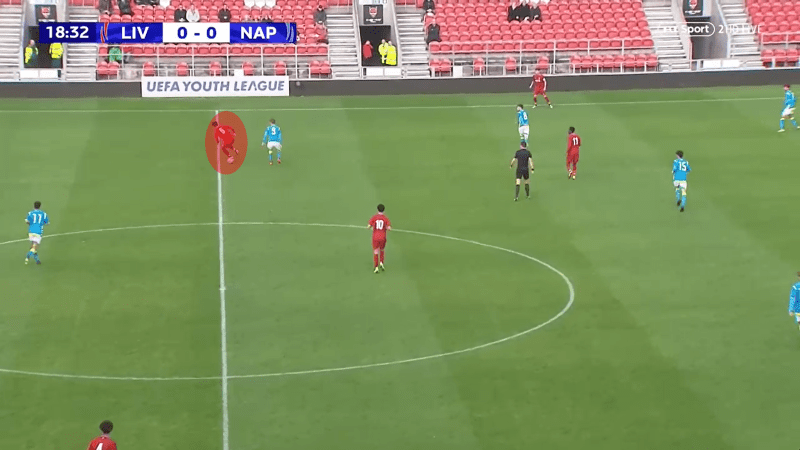
Hoever has also shown an eye for goal for his national side, scoring three goals in five appearances for the Netherlands under-17s. He also scored a tremendous dipping free-kick from 25 yards out for his previous club Ajax under-17s.
Ki-Jana Hoever (16) with his first goal for Ajax U17. Great free-kick! ⚽️😍#AjaxU17 #AjaxYouth [@trodat4030] pic.twitter.com/Qn2rzKrfhQ
— Ajax Youth Academy (@AjaxYA) January 20, 2018
Aerial ability
At 17 years of age, Hoever has a lot of time to grow and develop in a physical way. Even still, at this young age, he shows a huge amount of talent in the air. He has a 65% win rate in the air, which is just under Virgil Van Dijk’s 68%. What it also good about Hoever is he understands where to head the ball.
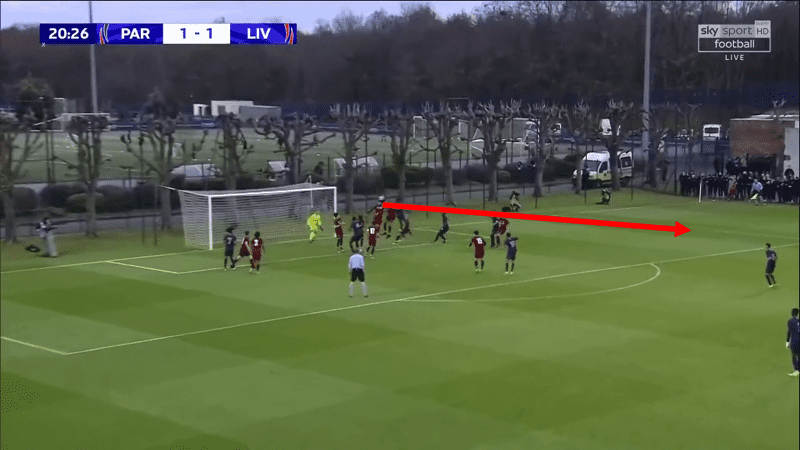
In the example above against PSG under-19s, not only does he win the header in the box, but he also clears the ball out wide, away from danger and the PSG player waiting at the edge of the box. This comes from his brilliant awareness and reading of the game.
Defensive triangle
When watching Hoever you can tell he is always looking where the ball and the attacker are. This is his defensive triangle and he keeps this well, giving him a good knowledge of when to press the ball and when to step back.
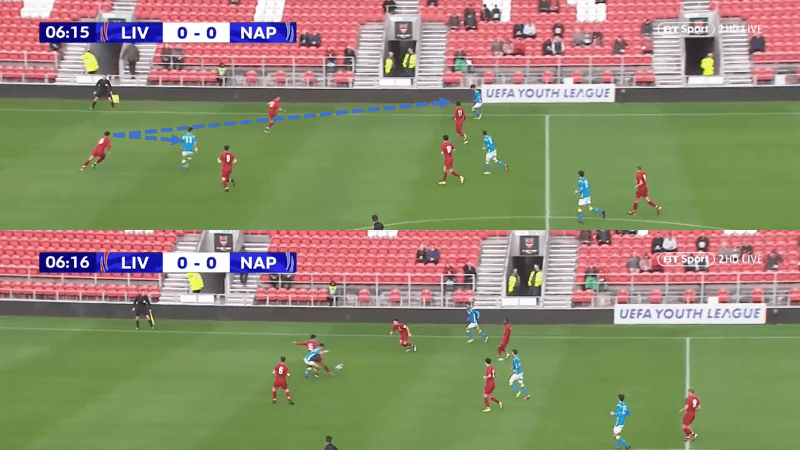
Here against Napoli, you can see that Hoever is looking at both the ball and the player. This is good, because he can cover if the #11 makes a run in behind. In this case, however, he looks to receive it short in the belief he has the pace to get to the ball before it reaches the #11. Ultimately Hoever succeeds, and wins back possession for Liverpool.
One on one
Hoever is also very intelligent in dangerous one-on-one situations. Unlike other young and inexperienced centre-backs Hoever is patient and does not dive in. He likes to show the attackers down the line and into less dangerous situations.
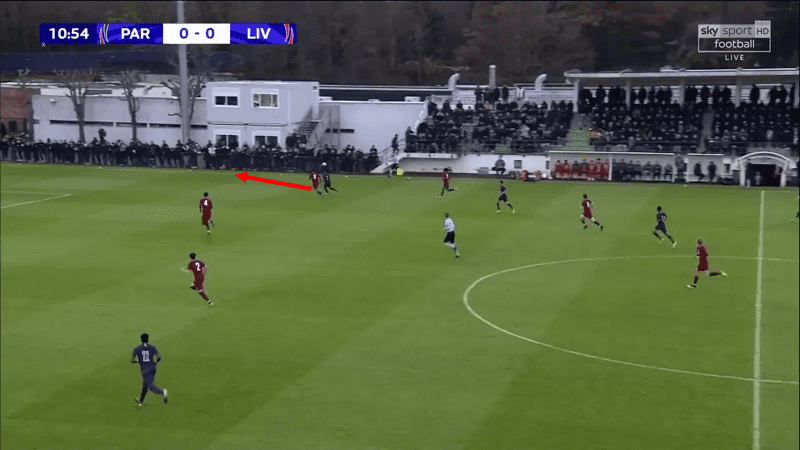
Against PSG he gets dragged across from left centre-back to deal with the pressure from the PSG attacker. If Hoever dives in or gets beaten by the attacker, there is a high chance of a one-on-one opportunity. However, he shows the attacker down the channel, eliminating the chance of a pass or an attempt for the attacker. Hoever will then wait for a trigger in order to make his challenge and regain possession.
Not the finished article?
Below against Villareal under-23s, a game that didn’t go well for any of the Liverpool players as they lost 7-0, you can see Hoever chasing the ball. In this game he plays right back and gets caught out of position, leaving his centre-back to cover for him. His recovery run should be to fill the gap which is left. However, he doesn’t, which leaves a huge gap for the striker to get in behind the other centre-half.
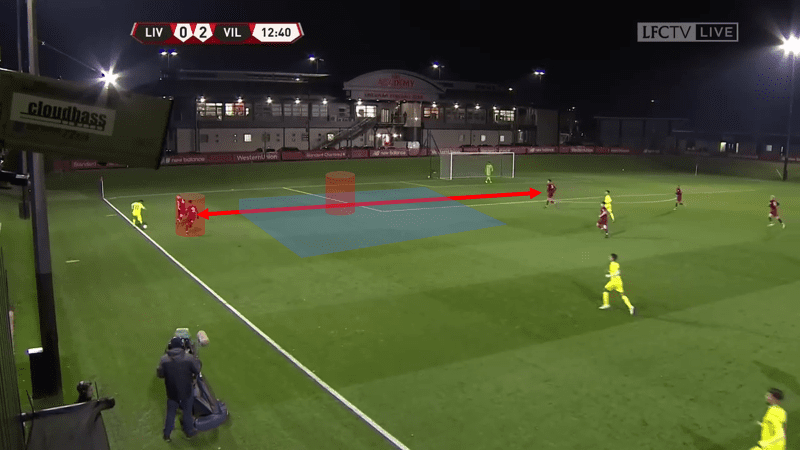
At 17 years of age, Hoever is bound to make mistakes leaving him to get caught out of position. He has a great knowledge of football which is only going to develop now he is training with the first team with Klopp. Hoever is a rare centre-half as he is very technically gifted whilst in possession, but also has the knowledge and understanding to play in a defensive role. His physicality and technicality will definitely improve in the coming years meaning that Ki-Jana Hoever has every chance to fill his potential and match the standard of his compatriot Virgil van Dijk in the future.
If you love tactical analysis, then you’ll love the digital magazines from totalfootballanalysis.com – a guaranteed 100+ pages of pure tactical analysis covering topics from the Premier League, Serie A, La Liga, Bundesliga and many, many more. Buy your copy of the January issue for just ₤4.99 here, or even better sign up for a ₤50 annual membership (12 monthly issues plus the annual review) right here.

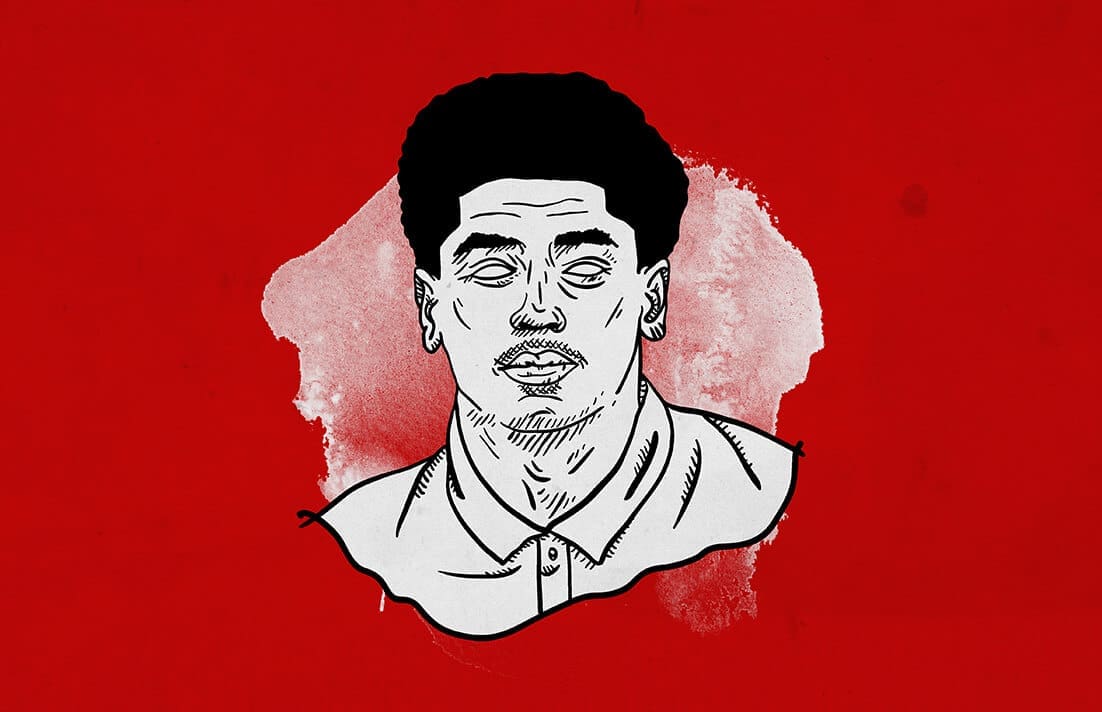



Comments